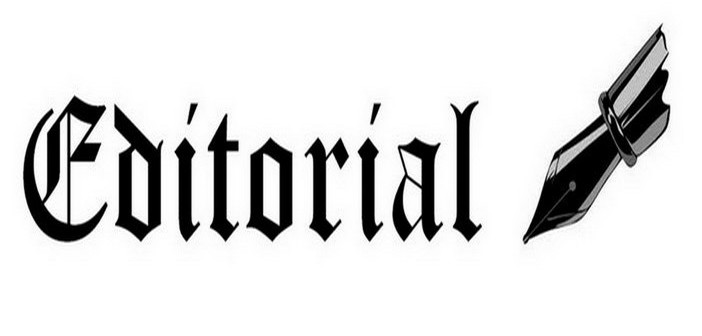“I don’t know why he comes back: because people really should throw stones at him… but no; they demand him! The streets demand a chief!”
 More than two years ago, in July 2012, a Tunisian friend and reporter shared his fears with me. They concerned a certain Béji Caïd Essebsi, dinosaur of the old regime, who will probably be elected by a wide margin in a few days time, at the end of the second round of the presidential elections.
More than two years ago, in July 2012, a Tunisian friend and reporter shared his fears with me. They concerned a certain Béji Caïd Essebsi, dinosaur of the old regime, who will probably be elected by a wide margin in a few days time, at the end of the second round of the presidential elections.
“I do not see why we go and look in the past”, said an internationally known human rights lawyer in Tunis indignantly at the same point in time. “Looking for someone who participated in the repressive politics of Bourguiba, someone who has been minister of the interior after being director of security, responsible of very severe acts of torture…
We have witnesses. We organised a Maghreb meeting to talk about torture and to listen to what the witnesses had to say. I cannot tell you how terrible it was!
The people told how Essebsi himself arrived, with his cigar and his bow tie. He sees the people in chains on the floor. He asks: ‘Are these bastards still alive!?’, with an arrogant tone in his voice and shaking the ash off his cigar. When other ministers of Bourguiba had been there the same day to see them and, when leaving, told them: ‘May God help you’…”
Is it the naivety of a dead-born civil society, which let those deposed renegades with blood on their hands be candidates again?
Or is it the blunder explained by absence of alternative? The exiting President, Moncef Marzouki, owed his “election” by the members of the constituting assembly only due to the necessity of a compromise – the one proposed by the Islamists of Ennahdha, who only lacked few seats to be able to reach a majority and direct the debates singularly.
The fourth wheel on the chariot: disavowed in the legislative elections of October 2014: exit also of the human rights candidate, exit of his centre-left party as well, the Congress for the Republic only occupying four miserable seats in the freshly elected parliament…
Maybe the leaders of Ennahdha, who did not present any candidate for the presidential elections, will surprise everyone and call their troops to mobilise in the second round in favour of Marzouki. So as to block Essebsi, with whose party Nidaâ Tounes they have nonetheless concluded a secret alliance – as the rumour runs: a pre-electoral agreement, so to say, about staying in power… But alliance is not friendship an in the HQ of Ennahdha the old ‘bourguibian’ bandit, in later times even ‘benalist’, is observed with a watchful eye and bad looks, so as to say that after all he should be held back a little …
Moncef Marzouki would then, once again, be a President elected by default – once again the candidate of the Islamists…
That said, Ennahdha has not called to support Marzouki in the first round of the vote; it is hence quite improbably that they will do otherwise in the second round.
Or, more probably, will this “civil society”, which was supposed to lead Tunisia towards the radiant dawn of democracy, resume to few things and most of all to the myth established by some journalistic Westerners, too certain about having perfectly understood all the socio-political realities of the Maghreb and the Orient? And would Tunisia be brought to the recurring destiny of its fellows in the “Arab Spring”, Yemen, Egypt, Syria … autocracy or oligarchy … and, more unexpectedly, exacerbated jihadism.
Some keep hope, a well-kept trust in the democratic ideal of the spring of 2011, which as of now only holds onto conviction, rather than reason: with a second round of the vote scheduled on the 14th of December, but postponed to the 28th, due to administrative issues, followed by the promise to be anticipated to the 21st, the Tunisian presidential elections will keep for some more days their mystery … even if some say that the dice have already fallen…
Dominating in parliament and probably soon elected to the head of a state by a people who regrets the time of the “rais”, Essebsi and his party will have a free hand to bring back Tunisia on the right track – the one, which the economic Occident was afraid to lose for a while.
“But still!”,carried on the human rights lawyer, “How can one not have a feeling of empathy with people who are enchained during years, in deteriorated buildings and rooms in which water constantly flows, in humidity? No, no! He is a fascist!”
Not one line in the Western media about this horrible past; not even a single word from the ignorant literary hacks, apparently still more or les subjugated by the “Arab Spring”, who last January praised the Tunisian constitution, eagerly voted for, full of shadow zones, shaky compromises with potentially very liberticidal consequences. Now they applaud the election of a bastard and the return of the old regime to the head of the state…
It is like in one of those old films of the French filmmaker Chabrol: “Shut up! Will you!”
Nonetheless, in this case, the media sphere stays suspicious: you never know… If the truth explodes…



